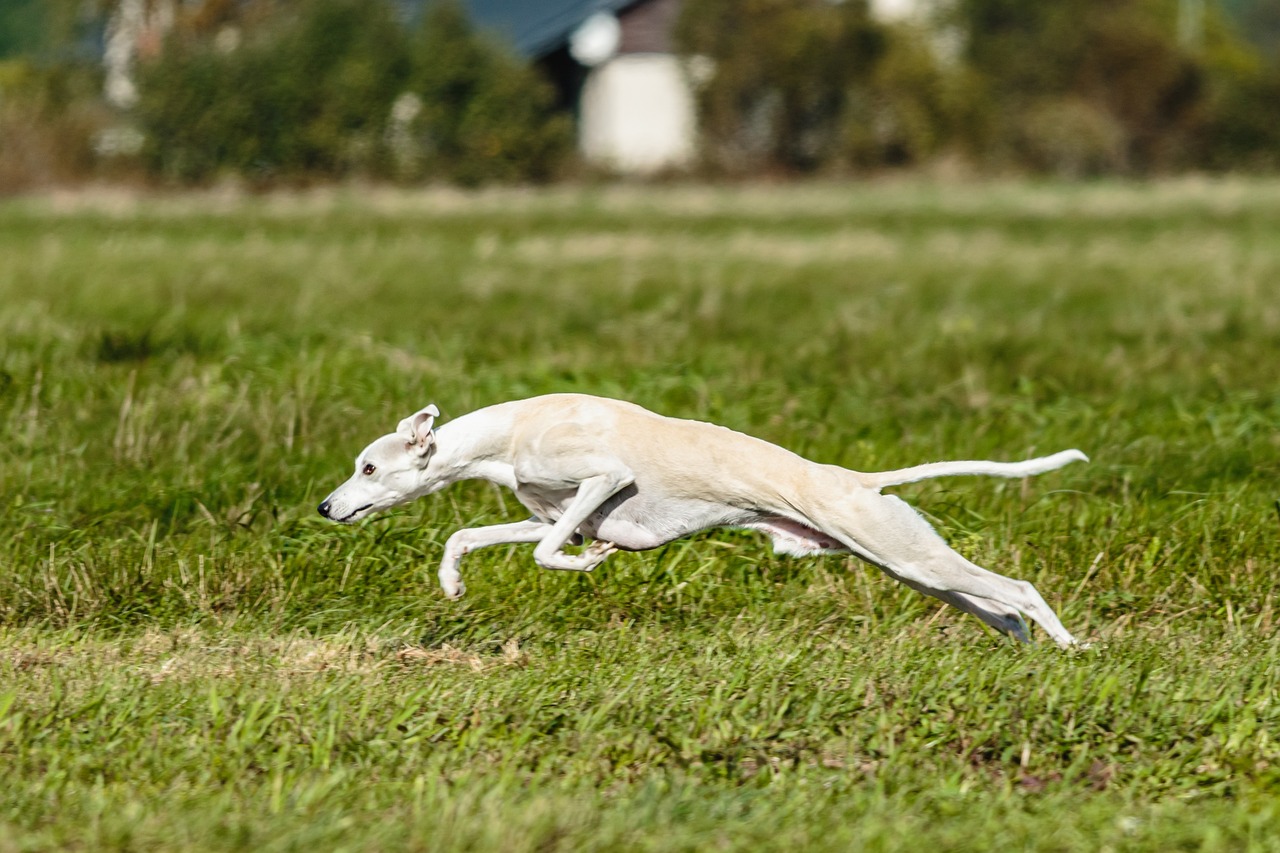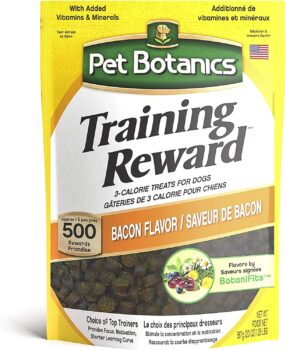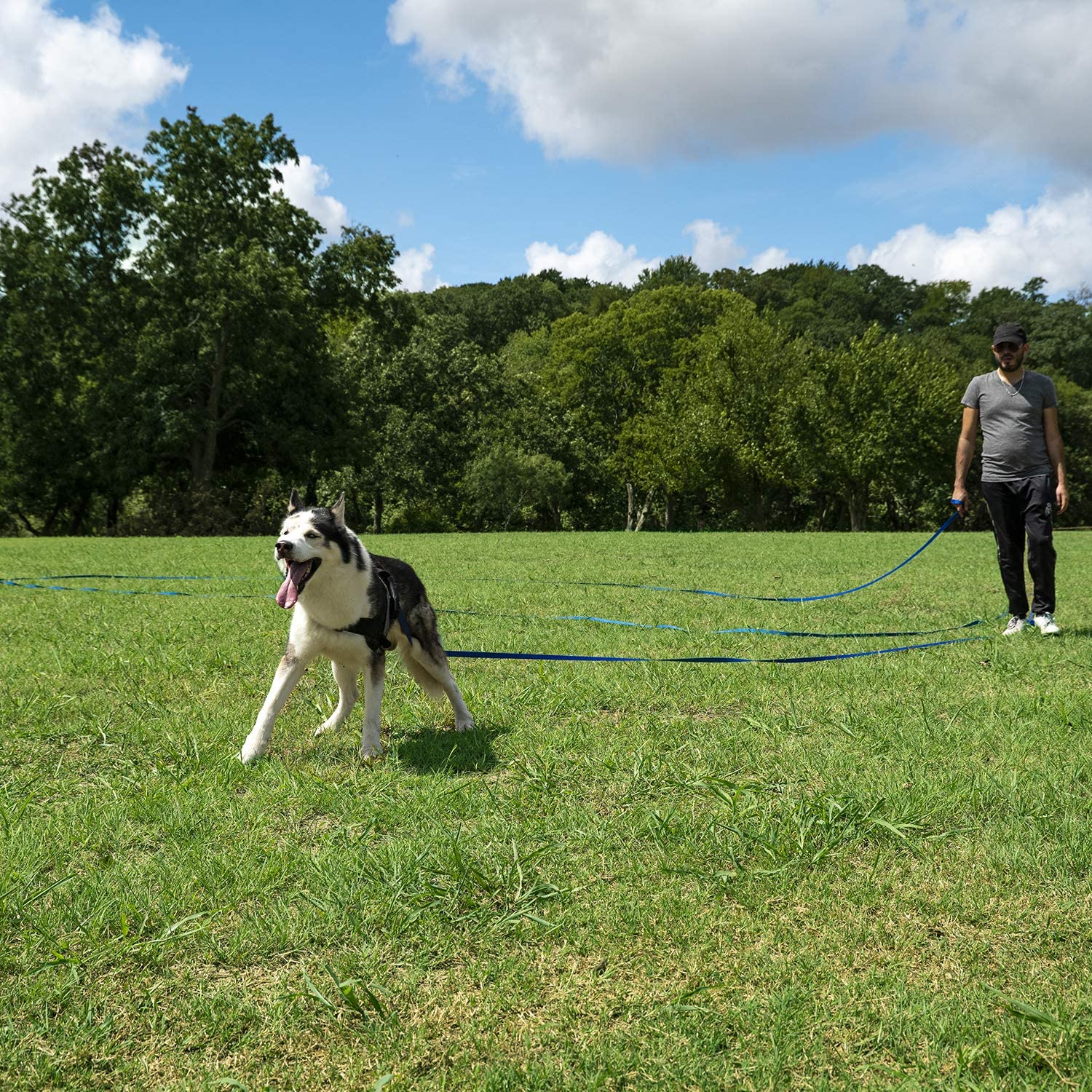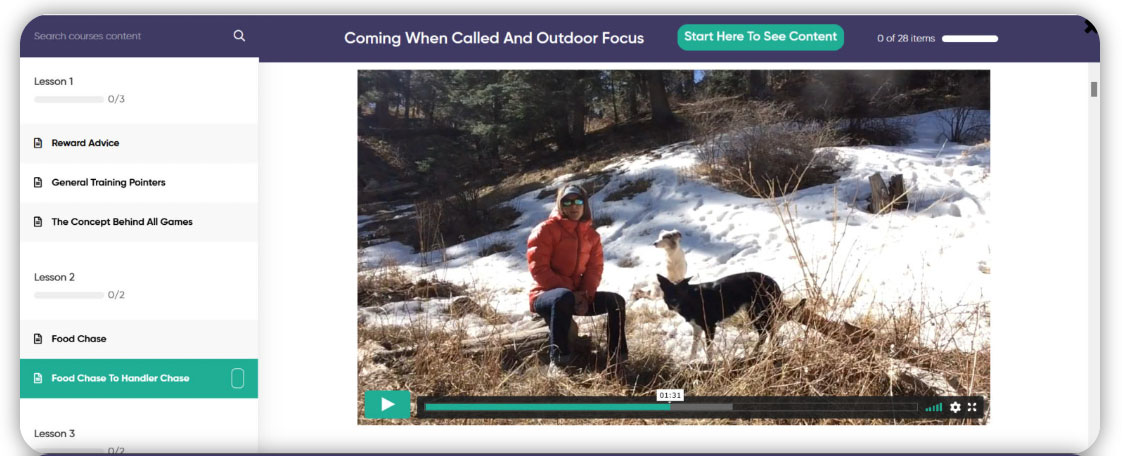
Training your Whippet to come when called is an essential skill that every owner should prioritize. As natural sprinters, Whippets have a strong prey drive and can easily become distracted by small animals or other tempting stimuli. This makes it crucial for them to obey recall commands, especially when they are off-leash. Fortunately, with consistent training, positive reinforcement, and patience, you can teach your Whippet to come when called reliably.
In this article, we will explore some effective techniques that will help you train your Whippet to respond to your recall commands promptly and enthusiastically.
Note: For a complete training, we highly recommend this SpiritDog Online Training Course “Coming When Called”.
1. Start with a Strong Foundation
Before you begin training your whippet to come when called, it’s crucial to establish a strong bond with your pet. Spend time playing with your dog, engaging in activities they enjoy, and providing positive reinforcement through praise and treats. Building trust and a strong connection with your whippet will make them more likely to respond positively to your commands.
2. Choose a Distinct Command Word
Select a specific word or phrase for the recall command, such as “come” or “here.” Ensure that the command is distinct from other commands you use and that all family members use the same word consistently. Consistency is critical to avoid confusing your whippet and ensuring that they understand what you expect from them.
3. Begin Training Your Whippet in a Controlled Environment
Start training your whippet to come when called in a controlled, distraction-free environment like your home or a fenced yard. In the early stages of training, it’s essential to minimize distractions to help your dog focus on learning the new command. As your dog becomes more reliable in responding to the recall command, gradually introduce distractions and practice in various environments.
4. Use Positive Reinforcement with Your Whippet
When training your whippet to come when called, always use positive reinforcement techniques. Reward your pup with praise, treats, or playtime when they respond to your recall command. This will help create a positive association with the command and motivate your dog to respond consistently. Remember to be patient and consistent in your training, as it may take time for your dog to master the recall command.
If you’re using treats, these are currently the most popular training treats on Amazon.
5. Gradually Increase Distance and Distractions
As your whippet becomes more reliable in responding to the recall command in a controlled environment, begin to increase the distance between you and your dog during training sessions. Practice calling your dog from various distances and gradually introduce distractions, such as other dogs, people, or toys. This will help your dog learn to respond to the command even in challenging situations.
Related: Looking for the fastest way to train your whippet to come when called? Try this video course.
6. Make Yourself Interesting and Rewarding to Your Whippet
To encourage your whippet to come when called, make yourself more appealing and rewarding to your dog. Use an enthusiastic, high-pitched voice when calling your dog, and reward them with a treat or praise when they respond. You can also try running away from your dog when calling them, as this can entice your dog to chase after you and respond to the recall command.
7. Never Punish Your Whippet for Coming When Called
It’s essential to avoid punishing your whippet if they do not immediately respond to the recall command or if they come to you slowly. Punishing your dog can create a negative association with the command and make them less likely to respond in the future. Instead, be patient and continue to practice and reinforce the command using positive reinforcement techniques.
8. Practice the Recall Command Regularly with Your Whippet
Consistent practice is crucial for training your whippet to come when called. Incorporate recall training into your dog’s daily routine, and practice the command in various environments and situations. This will help reinforce the behavior and make it more reliable over time.
9. Use a Long Training Leash on Your Whippet
When transitioning from a controlled environment to a more open space, consider using a long training leash to maintain control over your whippet while they learn to respond to the recall command. This will help you avoid losing control of your dog and provide a safety measure as you gradually increase the distance and distractions during training sessions.
This is the most popular long training leash on Amazon.
10. Be Patient and Persistent with Your Whippet
Training your whippet to come when called takes time, patience, and persistence. Some dogs may learn the command quickly, while others may require more time and consistent practice. Be patient with your dog and maintain a positive attitude during training sessions. Remember that every dog is unique, and the key to success is consistent practice and positive reinforcement.
11. Use a Professional Online Whippet Training Course
While this article provides many helpful tips for training your whippet, you can increase your chances of success by enlisting the help of a professional online dog trainer. We love the SpiritDog online courses, since its includes unlimited questions with a real dog trainer.
You can check out their Teach Your Whippet to Come Online Course Here
In conclusion, training your Whippet to come when called is not only crucial for their safety but also enhances their overall behavior and obedience. By using positive reinforcement, consistent training, and patience, you can teach your Whippet to respond to your recall commands promptly and reliably. It’s important to remember that Whippets have a strong prey drive, and distractions can be challenging to overcome, but with time and effort, you can build a strong recall behavior that will keep your Whippet safe and happy. So, start practicing today and enjoy the benefits of having a well-trained and obedient Whippet.
More Frequently Asked Questions For Training Your Whippet
Training your Whippet to come when called is an important aspect of owning a well-behaved and obedient dog. However, many Whippet owners often have questions about other aspects of training their pets. In this article, we’ll answer some of the more frequently asked questions about training your Whippet.
1. How can I stop my Whippet from pulling on the leash?
Whippets are naturally energetic and love to run, making it challenging to stop them from pulling on the leash. However, there are several techniques you can use to train your Whippet to walk calmly on a leash.
The first step is to invest in a well-fitting harness that doesn’t put pressure on your Whippet’s neck. A harness provides more control and reduces the risk of injury. Secondly, start training your Whippet to walk calmly on a leash in a controlled environment such as your backyard or a quiet park. Use positive reinforcement, such as treats or praise, when your Whippet walks calmly on the leash. If your Whippet starts pulling, stop walking, and wait for them to calm down before continuing. Be patient and consistent with your training, and your Whippet will eventually learn to walk calmly on a leash.
2. How do I train my Whippet to stop barking excessively?
Whippets are generally quiet dogs, but excessive barking can be a problem if not addressed promptly. The first step is to identify the reason why your Whippet is barking excessively. It could be due to boredom, anxiety, or fear. Once you know the cause, you can start addressing it through training.
If your Whippet is barking out of boredom, ensure they get enough exercise and mental stimulation. Provide them with interactive toys or playtime with other dogs to keep them entertained. If your Whippet is barking out of fear or anxiety, consider working with a professional dog trainer who can help address the issue through desensitization and counterconditioning techniques.
Additionally, it’s important to avoid reinforcing your Whippet’s barking behavior. Avoid yelling or punishing your dog, as this can increase their anxiety and lead to more barking. Instead, reward your Whippet when they are quiet and provide positive reinforcement for good behavior. With patience and consistency, you can train your Whippet to bark less and be a quieter, more well-behaved pet.
3. How do I train my Whippet to be more social with other dogs?
Whippets are generally friendly and social dogs, but some may be shy or timid around other dogs. The key to training your Whippet to be more social with other dogs is to expose them to different dogs and situations gradually.
Start by introducing your Whippet to other dogs in a controlled environment such as a dog park or a friend’s backyard. Use positive reinforcement to reward your Whippet for calm and friendly behavior, and avoid forcing them to interact with other dogs if they seem uncomfortable or anxious. Over time, gradually increase the duration and frequency of these interactions, and provide plenty of positive reinforcement along the way.
Additionally, consider enrolling your Whippet in a socialization class or working with a professional dog trainer to help build their confidence around other dogs. With patience and consistent training, your Whippet can become more social and comfortable around other dogs.
In conclusion, training your Whippet requires patience, consistency, and positive reinforcement. Whether you’re trying to stop your Whippet from pulling on the leash, barking excessively, or being more social with other dogs, there are various training techniques you can try.
4. What’s the best online course for teaching a whippet to come when called? At iHeartDogs, we recommend the SpiritDog online course “Coming When Called.” The course includes unlimited questions with a real dog trainer.
iHeartDogs is reader supported. Our articles contain affiliate links where we are paid a small commission for linking to a product at no additional cost to the reader.



 Toledo, United States.
Toledo, United States.